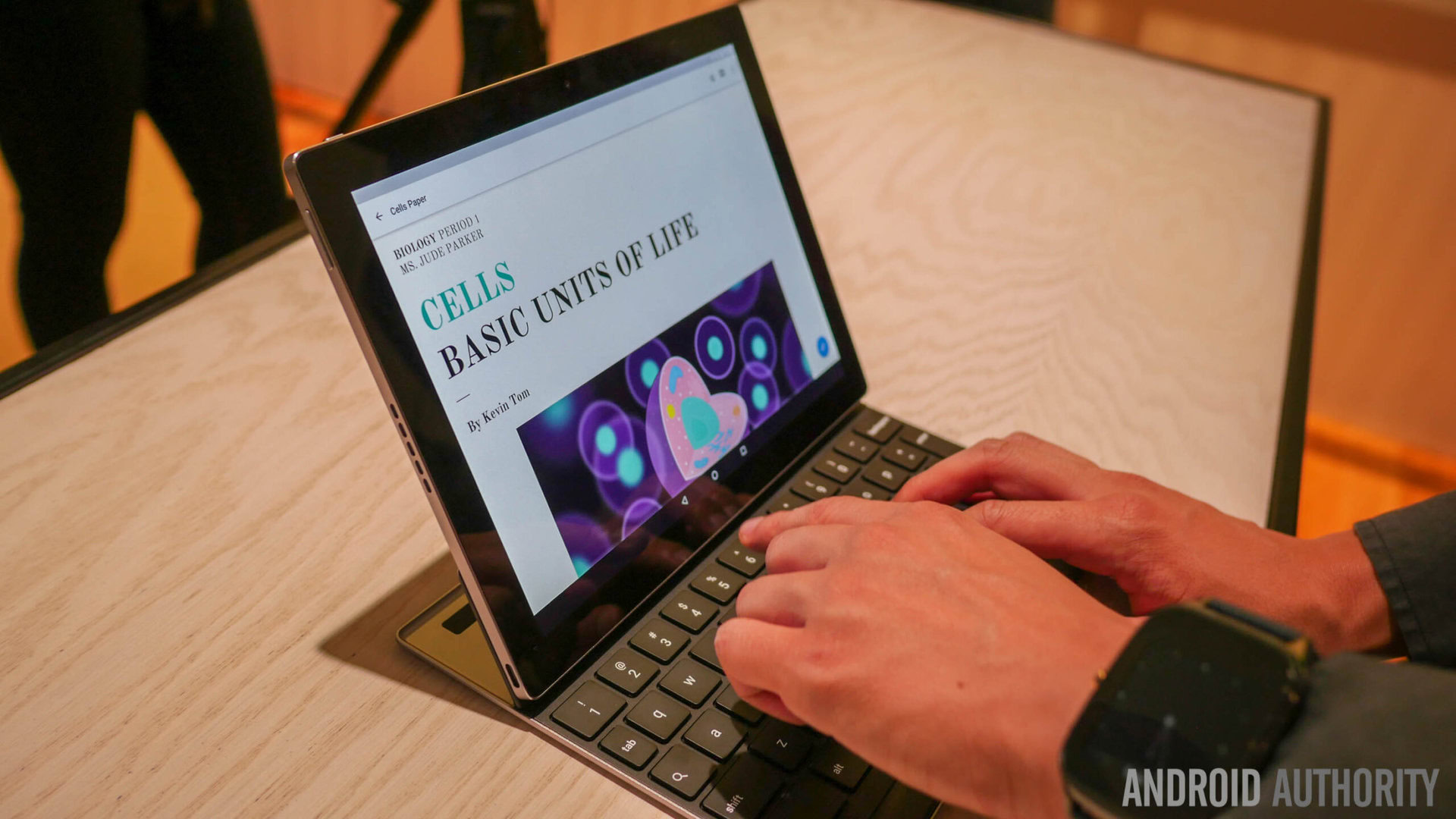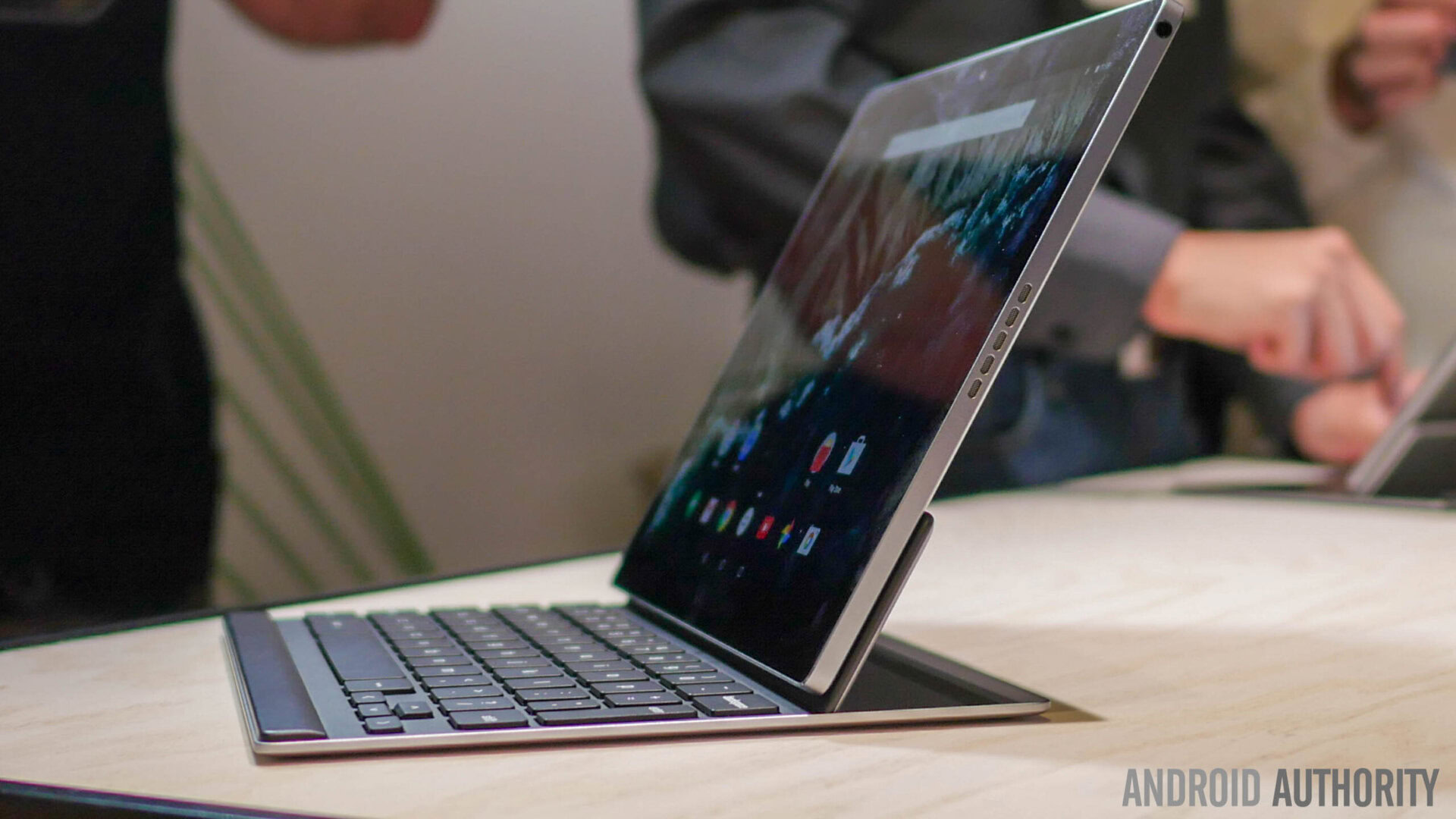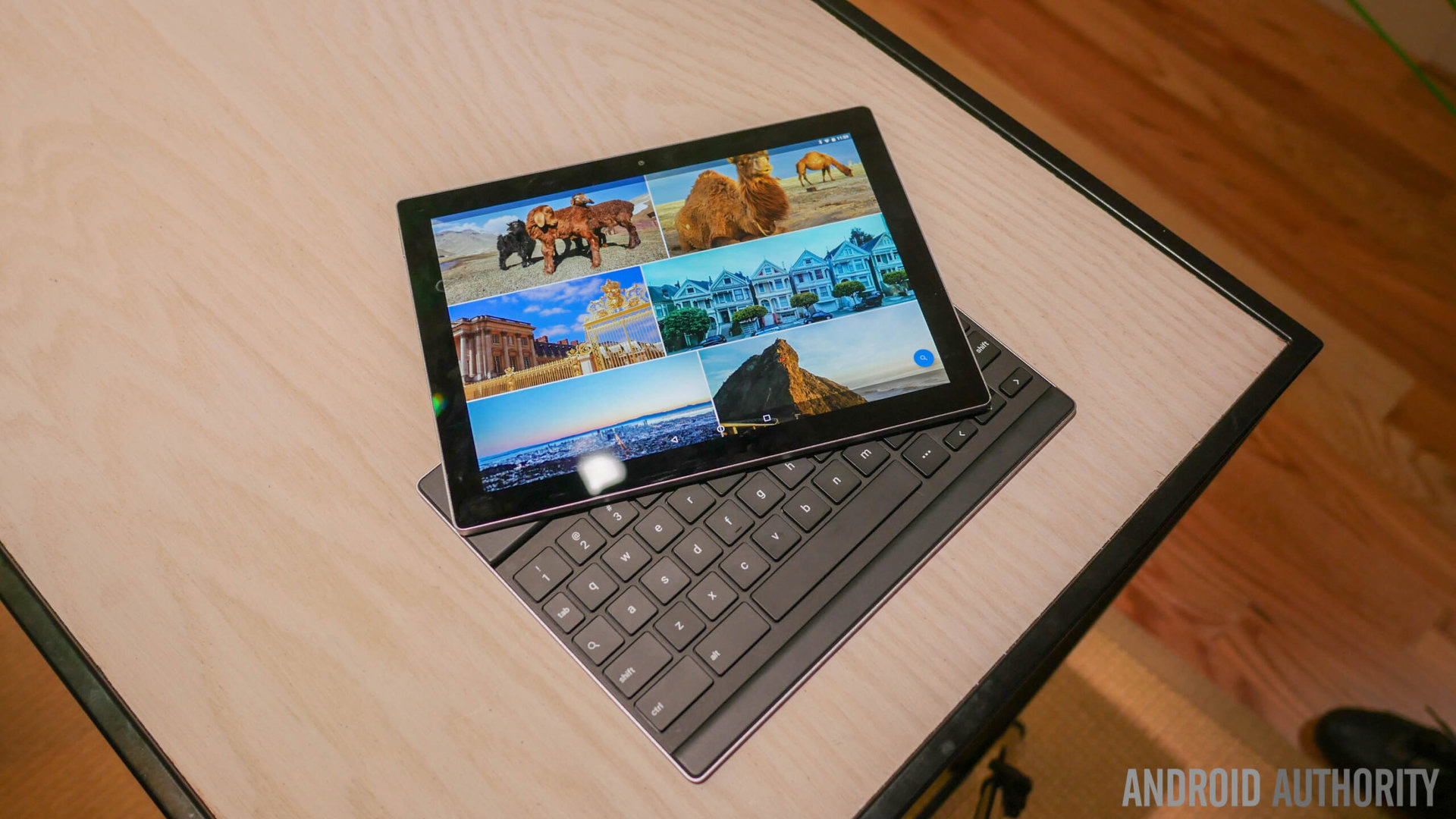Affiliate links on Android Authority may earn us a commission. Learn more.
Evidence says the Pixel C wasn’t designed to be an Android device

When the Pixel C surprisingly hit stores on Tuesday, initial reviews came out pretty glowing. The hardware looked impressive, after all, and many users praised the sturdy construction and gorgeous 10.2-inch display. They physical keyboard promised that this tablet would be the kind of machine you could really get work done on as well.
However, software issues soon began to make themselves apparent, and public perspective of the Pixel C rapidly shifted. It almost seemed like the software hadn’t been finished, and the development team held a Reddit AMA in order to try to explain the devices shortcomings. The team promised that the software was going to continue to be developed, but they didn’t really offer any answer regarding why the Pixel C was rushed into release with so many problems still present.
Now a new theory has arrived that seems to completely explain the Pixel C’s shortcomings. Specifically, the device wasn’t supposed to be an Android tablet at all, but rather a Chrome tablet.

In a piece of damn fine journalism, Ron Amadeo over at Ars Technica wrote up an exposé detailing development of the Pixel C and organizing a body of evidence that’s very difficult to argue with. It seems the tablet was originally conceived to run as a flagship for a touch-centric version of the Chrome OS codenamed “Project Athena.” The hardware aspect of the device, called Ryu, was left stranded in no-man’s land when Project Athena was cancelled in December 2014. After an arduous attempt to combine Chrome OS and Android to create a dual-boot “Frankenboard,” the development team seems to have given up and flashed Android to push the device out before Christmas.

So perhaps the reason the Pixel C is something of a disappointing Android tablet is because it was never supposed to be an Android tablet. It was supposed to be a flagship Chrome tablet. The result is software living in the wrong hardware, a reanimated corpse doing its damnedest to pass itself off as human. Maybe over the coming months, tweaks to the software will let Android take better advantage of the Pixel C’s hardware capabilities, but in the mean time, we’re left with a device that seems to fall in the tablet version of the uncanny valley.
Any Pixel C owners care to chime in here? Does this explanation match your experience with the device so far? Let us know in the comments.